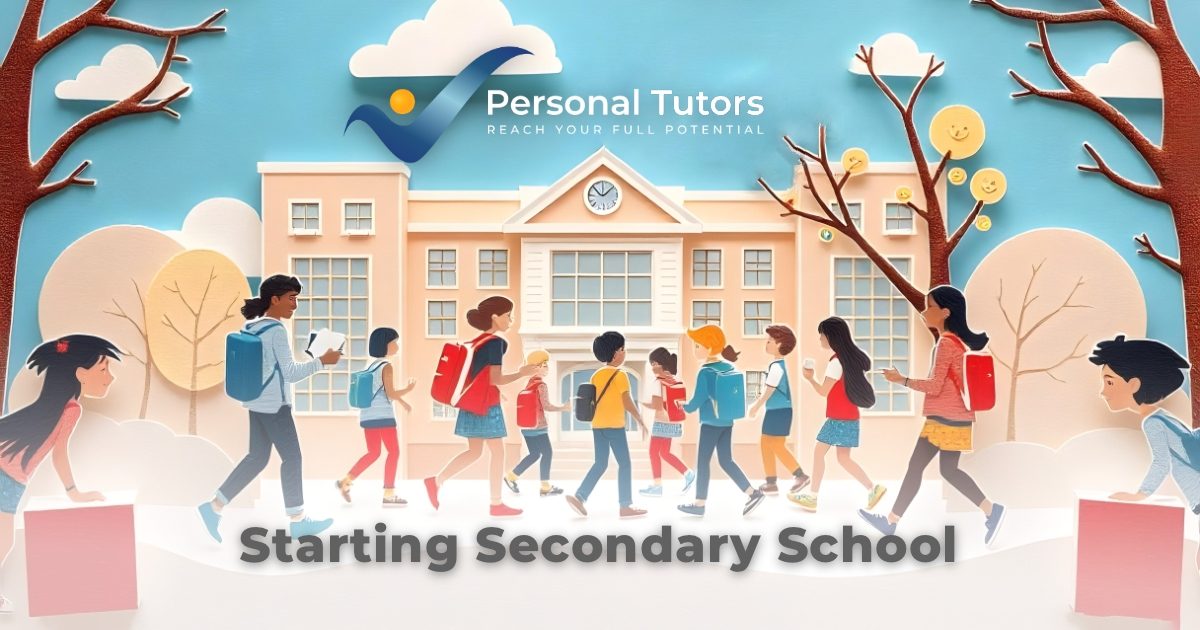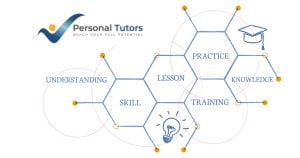A Guide for Students and Parents
The transition from primary to secondary school is an exciting and sometimes nerve-wracking experience for both students and parents. It’s a new chapter filled with opportunities for growth, learning, and independence. However, it can also bring challenges such as navigating a larger school, managing new subjects, and adapting to a different environment.
In this blog post, we’ll explore what to expect when starting secondary school and offer some helpful tips to make the transition smoother for students and their families.
A New School, A New Environment
Secondary school often feels much bigger than primary school, with more students, more teachers, and a larger school building. This change can be both exciting and overwhelming.
What to Expect:
New Faces: You’ll meet lots of new people, both classmates and teachers. Don’t worry if you don’t know everyone right away – friendships take time to form.
Different Classrooms: Unlike primary school, where most lessons take place in one classroom, secondary school involves moving between different classrooms for each subject.
More Independence: You’ll be expected to take more responsibility for your schoolwork, homework, and personal organisation. This includes managing your timetable and bringing the right materials for each lesson.
Tips for Students:
Get to Know Your School: Take time to familiarise yourself with the layout of your new school.
Stay Organised: Keep a copy of your timetable in your bag and locker, and consider using a homework diary or planner to track your assignments.
Don’t Be Afraid to Ask for Help: If you’re unsure about something – whether it’s finding a classroom or understanding a subject – don’t hesitate to ask teachers or older students.
New Subjects and Teachers
One of the biggest changes in secondary school is the wider range of subjects you’ll be studying. Instead of having one teacher for most of the day, you’ll have different teachers for each subject, which can be exciting and challenging.
What to Expect:
Broader Curriculum: You’ll start learning subjects like science, history, geography, and languages, in addition to core subjects like English and maths.
Specialist Teachers: Each subject will be taught by a different teacher who specialises in that area. This means you’ll experience different teaching styles.
Homework: Expect an increase in homework, as teachers will be setting assignments regularly to help you consolidate what you’ve learned in class.
Tips for Students:
Stay Engaged: Keep an open mind about the new subjects. You might discover a passion for something unexpected!
Manage Your Time: Homework can start to pile up, so it’s important to stay on top of it. Set aside time each evening to complete your assignments and avoid last-minute stress.
Develop Good Study Habits: As you progress through secondary school, exams will become more frequent. Developing strong study habits early will help you prepare for assessments and tests.
Friendships and Social Life
Making new friends is a big part of secondary school, but it can also be daunting at first, especially if you don’t know many people in your year group. However, secondary school provides many opportunities to meet new people and form lasting friendships.
What to Expect:
New Friendship Groups: You’ll be mixing with a larger group of students from different primary schools, which means the chance to meet lots of new friends.
Extracurricular Activities: Clubs, sports teams, and other extracurricular activities are a great way to meet people with similar interests. Most schools offer a wide range of activities outside of lessons.
Peer Pressure: As you adjust to secondary school, you might encounter peer pressure. It’s important to stay true to yourself and make decisions that are right for you.
Tips for Students:
Be Open and Friendly: Don’t be afraid to introduce yourself and start conversations with new classmates. Remember, many others are likely feeling the same way.
Join Clubs: Get involved in activities that interest you. Whether it’s sports, music or art, joining a club is a great way to meet like-minded friends.
Choose Friends Wisely: Surround yourself with people who encourage and support you. True friends will always respect your choices and make you feel comfortable being yourself.
Building Confidence and Independence
Starting secondary school is a big step toward becoming more independent. You’ll be managing more responsibilities, including your schedule, homework, and possibly even traveling to school on your own.
What to Expect:
More Responsibility: In secondary school, you’ll be expected to take greater responsibility for your own learning.
More Freedom: With this new independence comes greater freedom, both academically and socially. However, it’s important to balance freedom with responsibility.
Challenges: You may face challenges such as learning new subjects, dealing with setbacks, or adjusting to a more demanding schedule.
Tips for Students:
Take Responsibility: Start by taking ownership of your schoolwork and staying organised. Keep track of assignments, tests, and deadlines.
Build Confidence: If you face a challenge, whether it’s with schoolwork or socially, don’t be discouraged. Overcoming difficulties builds confidence. Always ask for help when you need it.
Celebrate Your Progress: Every time you learn something new or overcome a challenge, take a moment to recognise your achievements. These small successes build your confidence over time.
How Parents Can Support Their Child’s Transition
The move to secondary school is not only a big change for students but also for parents. Supporting your child through this transition is crucial, as they adjust to new routines and responsibilities.
What Parents Can Do:
Encourage Independence: Give your child the space to take responsibility for their schoolwork and daily routine, while offering guidance when needed.
Stay Engaged: Show interest in what your child is learning and ask about their day. This helps build a positive attitude towards school and encourages open communication.
Help Them Stay Organised: At the start, your child may need help managing their timetable and homework load. Encourage them to use a planner and help them develop good habits.
Be Supportive: Starting secondary school can come with ups and downs. Offer emotional support and reassurance, and remind your child that it’s okay to take time to adjust.
Final Thoughts
Starting secondary school is an exciting new chapter filled with growth and opportunity. While it may come with challenges, it’s also a chance to develop new skills, form friendships, and explore different subjects. By staying organised, keeping a positive attitude, and seeking support when needed, students can make the most of this new experience.
A personal tutor can help ease the transition, providing additional support for English and maths as well as other subjects.
Whether you’re a student preparing for this big change or a parent looking to support your child, remember that the start of secondary school is a journey, and with time, confidence will grow. Contact us here to find out how we can support you through this transition.





















































